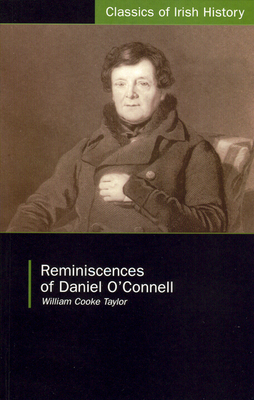Reminiscences of Daniel O'Connell
Gerard Curran reviews Reminiscences of Daniel O'Connell by William Cooke Taylor, University College Dublin Press (Classics of Irish History), ISBN 1 904558 25 9, €17/£12.95 pbk

WILLIAM COOKE TAYLOR was descended from Cromwellian planters. His occupations included teacher, landowner, judge, journalist and historian. Among his other writings was the History of Civil Wars in Ireland. After he went to live in England he joined the Whigs.
He is sympathetic to O'Connell as a leader of a downtrodden people, though he thought him too prone to excesses of vituperation, which he claimed did O'Connell's cause more harm than good.
When Taylor refers to the 1798 rebellion he labels it 'Catholic' because Catholics took part in it, but there is no mention of the Protestants , Tone, Russell Hope or any the Presbyterians who rose in the north.
Taylor regards the sychophantic reception given to George IV in Ireland by Daniel O'Connell and the other Catholic leaders as the worst set-back to the Catholic Emancipation campaign. According to Cooke-Taylor 'the king himself was worn out by the passionate servility of the Irish and he hastened his departure". Taylor argues that they should have peacefully demonstrated their desire for equality with Protestant fellow citizens and shown their unhappiness with the present state of affairs. O'Connell's servility attracted the ridicule of Thomas Moore and "provoked bitter invective from the sterner spirit of Byron".
As both O'Connell and Taylor supported laissez-faire economics, the author had no objection to O'Connell's attacks on Irish trade unionists. However, Taylor believed that O'Connell's support of the Whigs in parliament was disastrous as far his Irish policy was concerned.
A detailed description of the radical response in England to O'Connell's parliamentary career can be found in James Epstein's The Lion Of Freedom, Fergus O Connor and the chartist Movement 1832-1842, published by Croom Helm in 1982. In his study Epstein writes:
"Ultra radicals came to regard O'Connell as the most recent in a series of popular leaders turned apostate, who having gained influence through the mass support of the Irish people deserted the cause of popular rights for the fruits of Government favour. It would be difficult to exaggerate the symbolic importance which O'Connell's apostasy was to assume for Chartists. Just as Hunt and O'Connor came to symbolise the virtues of principled incorruptible leadership, O'Connell epitomised the popular leader who trafficked in politics, forever damned for his unprincipled betrayal of the Irish and English people at the hands of the 'base and bloody Whigs'".
William Cooke Taylor hits the right note in pointing out O'Connell's reluctant leadership of the huge 'Repeal' meetings, which ended with the cancellation of the largest of them at Clontarf.
While it would require the study of many works to understand this complex period in Irish and English history, this book is a good beginning.
Connolly Association, c/o RMT, Unity House, 39 Chalton Street, London, NW1 1JD
Copyright © 2005 Gerard Curran

